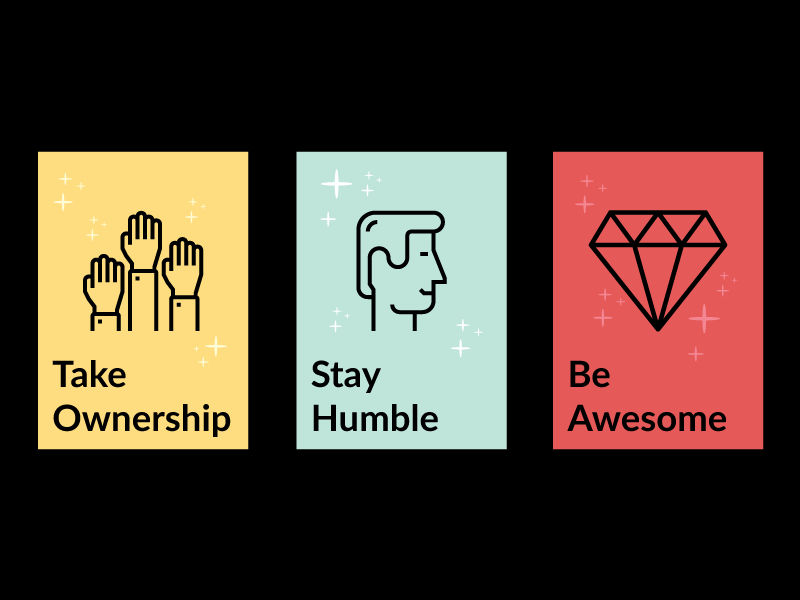Let’s start with a pull quote, from here:
But a couple of things have happened. One, there has been a lot more turnover and fluidity in the workforce, so you don’t have people who stay with your company over a long period. You don’t have that kind of organizational glue that naturally happens. Two, your customers and other people from the outside have way more visibility into your company now. They are starting to question, “What are your values? How are you operating? What distinguishes you from someone else?” They want to know if there’s something unique about your company that would influence their purchasing habits.
Let’s unpack this for a second.
Do “core values” actually matter?
Unfortunately, though, the people who tend to matter in white-collar work — the supposed “stakeholders,” if you will — do not believe they matter, often. Or perhaps a better way to say this is:
“They matter, but the balance sheet matters more.”
Get it. We all want to make money and pay our people (LOL, execs would prefer not to pay us…) but look above. A few things have changed.
Big change No. 1: Turnover
The average tenure of a North American employee is a little over three years right now. That’s, what, about 12 quarters? (This is how senior leadership teams think.)
If you’re turning over relatively quickly, the “organizational glue” that used to exist in companies is constantly shifting. You might have one dominant type of personality for 18 months, and then suddenly it’s all bro-y millennials on your sales team. This stuff happens.
When the actual context of the people involved is that fluid, core values have to matter. We often confuse this with process, as in “Follow these processes.” Process is part of your values, sure, but they are not the same thing.
Big change No. 2: Information about companies
Comical thing here: execs preach transparency, but don’t really want it. They usually want to protect intel at their level.
Well, we all got a big transparency bomb with the rapid scale of mobile/digital, where information is (a) out there and (b) moves quickly. There are thousands of “fixers” in the world, who fly in when something “blows up on Twitter.”
In those types of moments, having a set of core values does actually matter. You can’t lip service it when your dick is above the meat grinder.
Big change No. 3: Younger people supposedly want this from a company
Ah, the confusing world of “passion over profit.”
Until automation is at scale (it’s not yet), you need good people to drive your products forward.
Well, some of those good people are currently in their 20s.
Do they want a place with solid core values?
Many do. Some admittedly just want a fat-ass salary. We all vary.
But it’s helpful to acknowledge your core values and speak to them in a hiring process. It matters.
So how do we define core values better?
Few ideas:
- Why do we exist?
- How do we hit targets?
- What is permissible?
- What is not?
- What happens when someone gets sick?
- What happens when someone needs time away?
- How do we support each other?
- What happens if someone lies or cheats to get ahead?
- Who are we at our best?
- What about at our worst?
There’s a group at John Deere in India, where they face a really competitive labor market for engineers. On the first day, a new employee is met by a friend they had been corresponding with who shows up with a favorite beverage, and they walk to their cubicle. It’s already set up. In fact, the first email is from the CEO of John Deere, who talks about the legacy that we have, 175 years of innovation. The fact that we’re making products that make people food and give people shelter, so we’re doing important things for the world. He welcomes people to their first day. On the desk is a model of the first file that John Deere ever patented. It was a plow that you could pull behind your oxen or your horses that didn’t get caught up in root systems when you were plowing a field.
That’s a decent example of “these are our core values, and now we shall present them to you.” And yes, core values are deeply and massively tied to onboarding.
What else might you add on core values?
